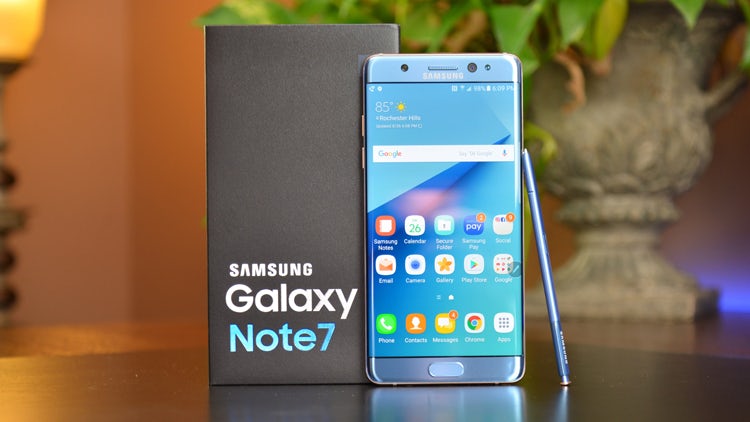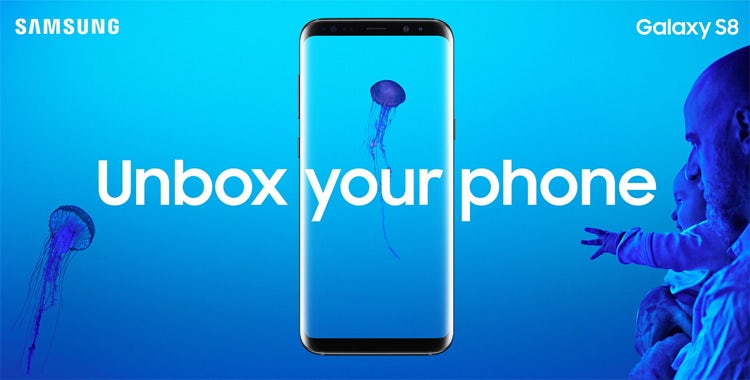Samsung’s flashy Galaxy S8 impresses but the brand ‘isn’t out of the woods yet’
Samsung has unveiled its first new smartphone since the Note 7 fire debacle as it looks to bounce back and prove it still has what it takes to lead the market.

Samsung has unveiled its first new smartphones since the Note 7 disaster, as it looks to prove the quality, safety and craftmanship of its devices.
Launching on 28 April, the new Galaxy S8 and S8+ feature an ‘infinity display’ screen that runs the full width of the device, an invisible home button, the ability to unlock your phone via facial recognition technology and even an earphone port. The latter is a dig at rival Apple, which controversially decided to get rid of the port and place its bets on wireless earphones for the iPhone 7.
The Galaxy S8 marks the first major launch since last year’s faulty Samsung Note 7 phone, which was subject to a worldwide recall after faults caused it to catch on fire and in some cases explode. And there’s no doubt the scandal caused major problems for Samsung.
READ MORE: Samsung’s profits have recovered but has the brand?
According to IDC, Samsung shipped 77 million smartphones globally in the fourth quarter of 2016. This represented a 7% decline on the previous year, when it shipped 83m units, and is slower sales growth than Apple recorded in the fourth quarter. Samsung also saw its total mobile handset sales fall 3% to 311.4m for 2016. But with a 21% market share, it still leads the sector.
Fighting Note 7 controversy

Samsung’s strategy in cleaning up the Note 7 controversy looks to have worked. Last year, it took out full page newspaper ads apologising for the debacle while the decision to ramp up prices for its components, such as displays and chips, meant the fourth quarter was actually one of Samsung’s most profitable quarters ever. It also managed to persuade some Note7 users to trade-in for a Galaxy S7 Edge, which softened the blow slightly.
And over the last 26 weeks, which cover when the Note 7 scandal emerged to now, Samsung’s index score – a balance of consumer perceptions of a brand’s quality, buzz, value, reputation and satisfaction – rose 1.8 points, according to YouGov BrandIndex. This meant it stayed top of a list of the UK’s 35 biggest mobile phone brands. However, even if it is still growing this was a much slower rate of growth than Apple, which benefitted from its rival’s woes and grew its index score by a more impressive 6.3 points over the same period.
Speaking to Marketing Week, Ben Stanton, an analyst at Canalys, says the Samsung brand “isn’t out of the woods yet” even if it is “on the up.”
He says: “Timing is crucial, and consumers have short memories. This is because smartphone refresh cycles are very short compared with products like tablets and PCs. Samsung has two major launch events every year. It is very easy for them to quickly shift consumer focus onto the next big thing.”
However, he thinks Samsung’s decision to relaunch refurbished Note 7 devices is an error at a time when the company is focused on its new smartphones.
“Samsung has made a major mistake by stating its intention to refurbish Note 7 devices so close to its Galaxy S8 launch. This is a misstep, which has detracted attention from Galaxy S8 and brought negative PR back to the surface at a critical time. Its brand isn’t out of the woods yet,” he explains.
Prioritising design with the Galaxy S8

Stanton says Samsung has thrown everything it has into the Galaxy S8 launch and is prioritising hardware in a bid to fightback against “aggressive” Chinese vendors such as Huawei and Oppo.
He explains: “The stand out feature of Galaxy S8 is design – make no mistake. Its rounded-edge display is beautiful. But it also shows that design aesthetic is the most important factor for smartphones now. For Samsung, it has become even more important than full-screen content delivery.”
The new Galaxy smartphones also feature Bixby, Samsung’s new artificial intelligence assistant tool and something it claims is far more advanced than the likes of Apple’s Siri or Microsoft’s Cortana. Bixby will deeply integrate itself within everyday functions such as recommending restaurants and possesses a “contextual understanding” of the world. Yet IDC analyst Francisco Jeronimo isn’t convinced by it.
He concludes: “The race is on to have the best digital assistant, since that will drive hardware sales. But in the past, some of Samsung’s features have looked great in presentations, but when you use them on a daily basis they have not been as good.”






